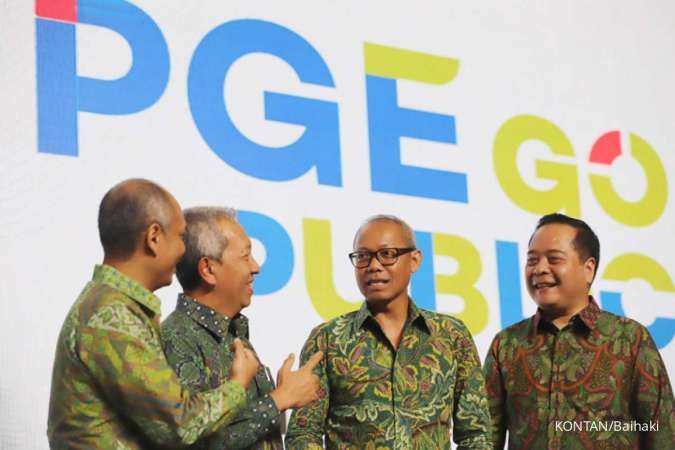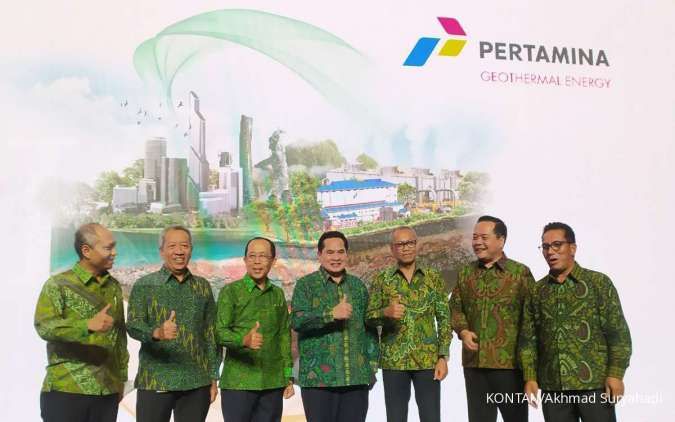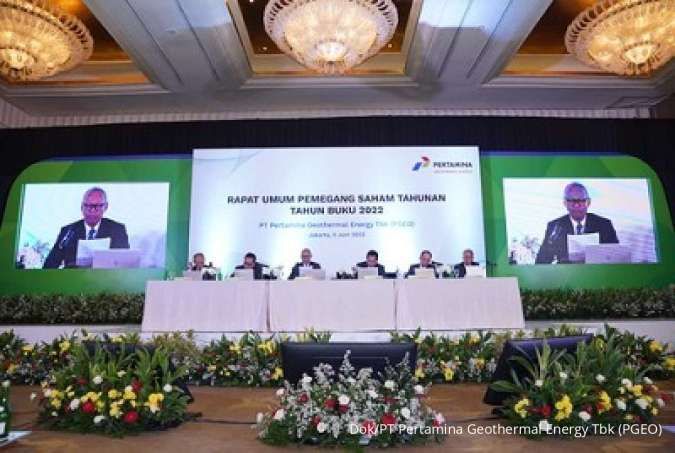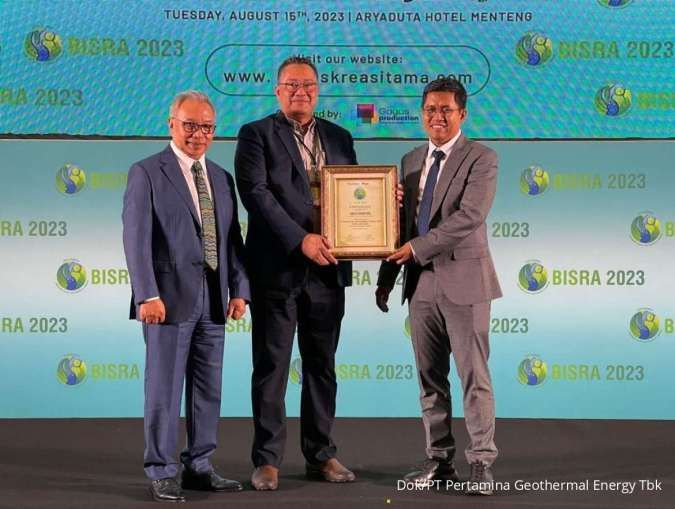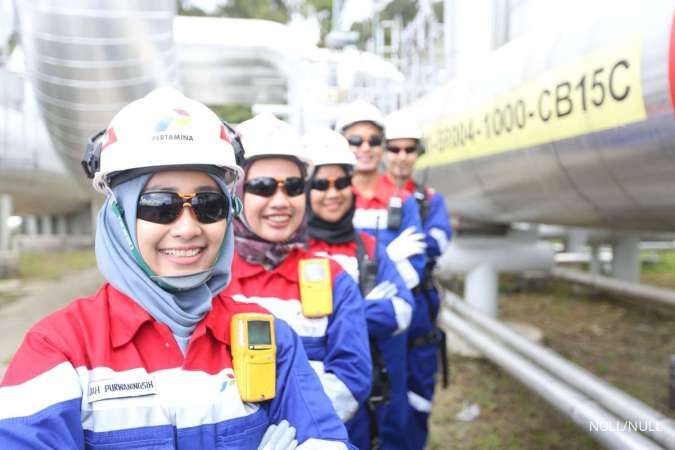GREEN BUSINESS - JAKARTA. The Indonesia Clean Energy Forum (ICEF) states that the increasing number of large companies developing geothermal power plants (PLTP) is partly due to the attractive business potential in the implementation of the carbon market.
ICEF member, Widhyawan Prawiraatmadja, states that several companies now appreciate the development of new renewable energy. They also anticipate a number of regulations that will be implemented, one of which is the carbon market trade.
“We see the connection with these geothermal companies, it turns out (carbon trading) is well received as reflected in the stock prices of Pertamina Geothermal and Barito. So if Barito wants to take its subsidiary public on the Indonesia Stock Exchange (BEI), it makes sense because it responds to that,” he said at the Indonesia Energy Transition Dialogue 2023 press conference in Jakarta, on Monday (18/9).
Previously, the Minister of Energy and Mineral Resources (ESDM) Arifin Tasrif stated that the government will certainly provide convenience because geothermal is ideal for implementing carbon trading.
According to Kontan.co.id records, the company that has tasted the sweetness of carbon trading is PT Pertamina Geothermal Energy Tbk (PGEO) which expects revenue from carbon credit to grow twice as much in the next five years.
As an illustration, last year, this subsidiary of PT Pertamina (Persero) earned new revenue from carbon credit of USD 747,000.
“Carbon credit is being promoted,” said Arifin recently.
Executive Director of the Indonesia Clean Energy Forum (ICEF), Fabby Tumiwa explains that, in general, private companies enter the geothermal industry because they see business potential and are interested in investing.
Fabby stated the business potential in this industry is quite large where the Indonesian government targets 7,000 MW or 7 Gigawatts (GW) by 2030.
Then based on the Just Energy Transition Partnership (JETP) funding scheme target, Indonesia must achieve a clean energy mix of 34% or equivalent to 35 GW of new renewable energy (EBT) development by 2030.
Read Also: Pertamina Geothermal (PGEO) Proyeksikan Kebutuhan Investasi 1 GW PLTP Rp 13,77 T
“There are targets for geothermal and hydro. In addition, there is solar, and wind too. But the focus of PLN until 2030 is to increase dispatchable power, not baseload so the electricity that is focused on or prioritized is hydro and geothermal,” he explained.
Not only that, the geothermal industry is increasingly being looked at because it already has a guarantee scheme that has been running for several years.
According to Fabby, this is progress because the guarantee scheme, through special exploration incentives especially Geothermal Resources Risk Mitigation (GREM) financing and government drilling exploration incentives, can be a catalyst that encourages geothermal development.
Apart from that, geothermal business players still consider geothermal development not too attractive because of the unattractive electricity tariffs. The electricity tariff is stipulated in Presidential Regulation 112 of 2022.
Even so, Fabby stated, the geothermal electricity tariff that was just released in September 2022, does not need to be hastily revised because according to its provisions, it will be reviewed every three years.
According to him, another issue that needs to be fixed is the procurement or auction process at PLN. ICEF believes the scheduled auction has more influence on the decisions of business actors and investors than tariffs.
“If later when PLN auctions many times the price does not fit, in my opinion, it becomes good material for the government to evaluate because the tariff setting is through a long process,” he explained.
Fabby explained every geothermal investment has a hurdle rate or benchmark in determining the minimum return. Even red-plate companies like Geo Dipa and Pertamina Geothermal Energy also have their hurdle rates so if they do not get the minimum return set by their investment committee, they are not allowed to invest.
So, determining the tariff will not solely win the hearts of business actors to develop geothermally. Instead, the auction scheme that has been complained about by developers needs to be improved again.
/2016/11/11/762143364.jpg)
